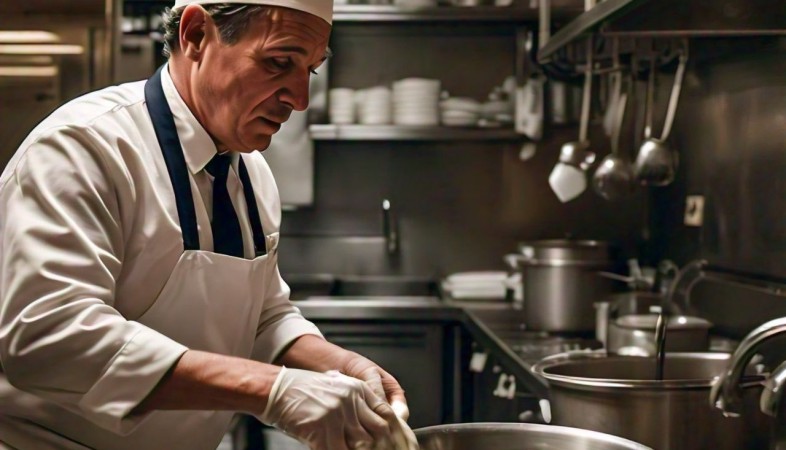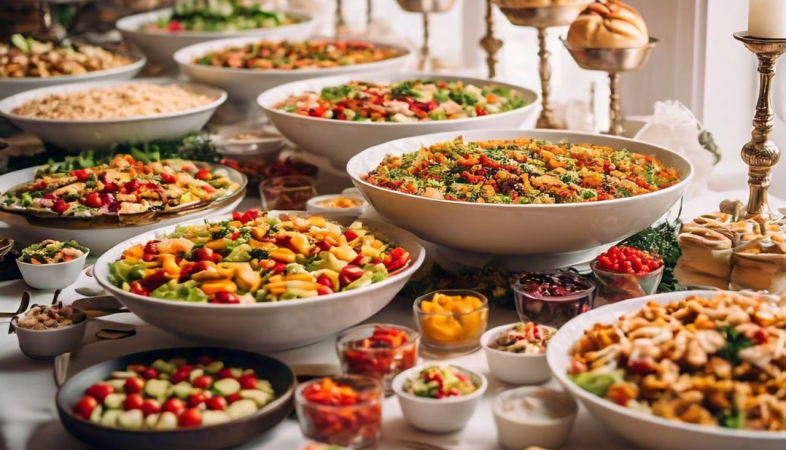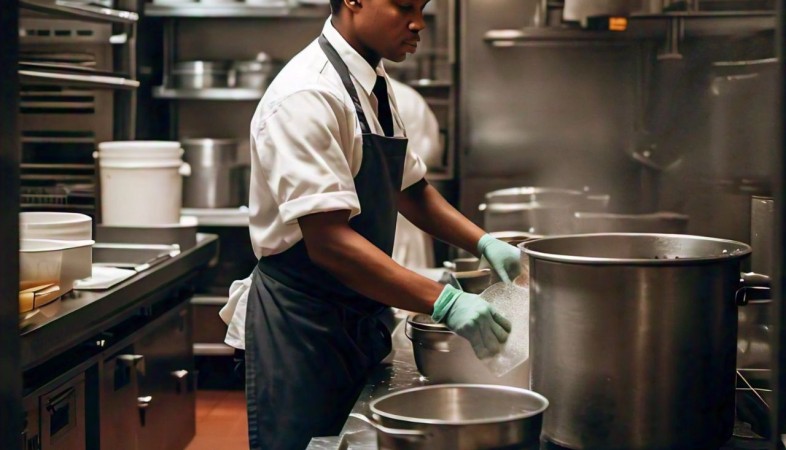The Science of Catering: Understanding Food Safety and Quality Standards
The science of catering encompasses a multifaceted approach to ensuring food safety, quality, and compliance with regulatory standards.
Catering is not just about serving delicious food; it's also
about ensuring that the food is safe to eat and meets high-quality standards.
Behind the scenes, there's a science to catering that involves understanding
food safety protocols, quality control measures, and regulatory standards.
Let's delve into the intricacies of the science of catering:
1. Food Safety Protocols: At the heart of catering is a commitment to food safety. Caterers must adhere to strict protocols to prevent foodborne illnesses and ensure the health and well-being of guests. This includes proper handwashing techniques, maintaining clean and sanitized workspaces, and following temperature control guidelines for food storage, preparation, and serving. Understanding the principles of HACCP (Hazard Analysis and Critical Control Points) is essential for identifying potential food safety hazards and implementing preventive measures throughout the catering process.
2. Safe Food Handling Practices: Catering staff must be trained in safe food handling practices to minimize the risk of contamination and foodborne pathogens. This includes properly washing and sanitizing fruits and vegetables, storing raw and cooked foods separately to prevent cross-contamination, and cooking foods to the correct internal temperatures to destroy harmful bacteria. Staff should also be vigilant in monitoring food expiration dates and discarding any expired or spoiled items to maintain food quality and safety.
3. Quality Control Measures: Consistency and quality are paramount in catering. Caterers must implement rigorous quality control measures to ensure that every dish meets predetermined standards of taste, texture, and presentation. This may involve conducting sensory evaluations, such as taste tests and visual inspections, to assess the quality of ingredients and finished dishes. Quality control also extends to monitoring food storage conditions, ingredient sourcing, and production processes to maintain freshness and integrity throughout the catering supply chain.
4. Menu Development and Nutritional Analysis: Caterers must balance culinary creativity with nutritional considerations when developing menus for events. Understanding the nutritional content of ingredients and dishes allows caterers to create well-balanced menus that cater to diverse dietary preferences and restrictions. This may involve conducting nutritional analyses of recipes to calculate calorie counts, macronutrient profiles, and allergen information, enabling guests to make informed choices about their meals.
5. Compliance with Regulatory Standards: The catering industry is subject to various regulations and standards set forth by government agencies and health authorities to ensure food safety and public health. Caterers must stay informed about relevant regulations, such as food safety codes, licensing requirements, and sanitation guidelines, and maintain compliance with these standards to operate legally and ethically. Regular inspections by health inspectors help ensure that catering facilities meet sanitation and hygiene standards and adhere to best practices in food handling and preparation.
6. Allergen Management and Dietary Restrictions: With the increasing prevalence of food allergies and dietary restrictions, caterers must be vigilant in managing allergens and accommodating special dietary needs. This includes accurately labeling menu items with allergen information, implementing procedures to prevent cross-contact between allergens, and offering alternative options for guests with specific dietary preferences or restrictions. Effective communication with clients and guests is essential to gather information about dietary restrictions and ensure that their needs are met safely and satisfactorily.
7. Continuous Improvement and Training: The science of catering is an ongoing process of continuous improvement and professional development. Catering companies invest in staff training programs to educate employees about food safety protocols, quality assurance measures, and industry best practices. Regular training sessions and workshops help reinforce proper techniques and cultivate a culture of excellence and accountability within the catering team.
The science of catering encompasses a multifaceted approach to ensuring food safety, quality, and compliance with regulatory standards. By understanding the principles of food safety, implementing quality control measures, and staying abreast of industry regulations, caterers can deliver exceptional culinary experiences that delight guests while prioritizing their health and well-being.
.png)




























